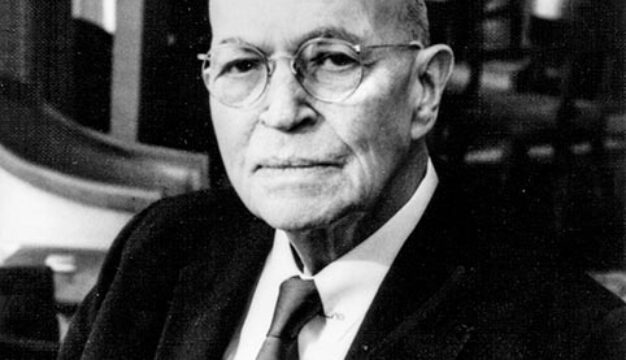Sampson Willis Harris
Sampson Willis Harris (1809-1857) was an attorney and politician who served in the Georgia and Alabama legislatures and was a U.S. representative from Alabama during the sectional crisis over slavery. He supported the institution and its spread to the territories, believing the federal government should play no role in its existence. Like most southern lawmakers, he supported elements of the Compromise of 1850 that protected slavery and opposed those that did not.
Harris was born on February 23, 1809, in Elbert County, Georgia, to Stephen Willis Harris, a judge, and Sarah Herndon Harris, a domestic worker. (Some sources say he was born in 1814, but his headstone says 1809.) He was the oldest of seven children. His father died in 1822, and Harris would follow in his father's footsteps to pursue the practice of law. Sampson was a nephew of Ptolemy Tinsley Harris who settled in St. Stephens, Washington County, and served as a judge in several capacities and represented Washington County in the state legislature before moving to Louisiana in 1848.
After receiving his early education from his mother, Harris continued to live in Elbert County until enrolling and graduating from the University of Georgia in 1828. He then studied law under his uncle, Judge Eli Shorter of Eatonton, Georgia, who was also uncle to Eli Sims Shorter of Eufaula, Barbour County. He began practicing law two years later in 1830 in Athens, Georgia. On March 12, 1833, he married Paulina Thomas in Putnam County, Georgia. The couple would have five children. One son, Sampson Willis Harris Jr., would serve in the Confederate States Army during the American Civil War. Another son, Hugh Nesbitt Harris, married Caro B. Yancey, daughter of attorney Benjamin Cudworth Yancey and niece of William Lowndes Yancey, who was a leader of the secession movement in Alabama. In addition to practicing law, Sampson briefly served in the Georgia House of Representatives in 1834 and 1835 and in 1838 moved to Wetumpka, at the time in Coosa County, Alabama. He possessed 11 enslaved persons at the time of the 1840 Census.
According to the Clarke County Democrat, Harris was a highly respected attorney and was elected solicitor general of the Eighth Circuit in 1841. In 1843, he ran successfully for the Alabama State Senate and served in 1844 and 1845. Harris was then elected U.S. representative from Alabama's Third Congressional District in the Thirtieth Congress, which sat in session in March 1847. He replaced James La Fayette Cottrell, who did not run for reelection. The district then consisted of Autauga, Bibb, Coosa, Dallas, Jefferson, Lowndes, Perry, and Shelby Counties. After several central Alabama counties were redistricted, Harris was elected in 1854 to represent Alabama's Seventh Congressional District and served from 1855 to 1857. The Seventh District then consisted of Benton, Chambers, Cherokee, Randolph, Talladega, and Tallapoosa Counties in the Thirty-Fourth Congress. (Benton County was named for Missouri senator Thomas Hart Benton and renamed Calhoun County in 1858 to honor radical secessionist John C. Calhoun of South Carolina). The seat had been held by James Ferguson Dowdell, who successfully ran for the Third District seat. Harris served on the Committee for Foreign Affairs and the Committee on the Judiciary.
Harris believed the national government had no jurisdiction in determining laws regarding enslaved labor. In Congress, he voted against the revival of the slave trade, but for the expansion of slavery in new territories admitted to the Union as a supporter of enslaved labor. In an 1848 speech regarding organizing Oregon as a territory, he noted that slavery is a lawful institution and that enslaved persons were considered property that were due the protections as included in the Constitution. He believed the Constitution allowed states, not Congress, to decide if they wanted to allow enslaved labor within their territory.
In September 1850, Congress took up the Compromise of 1850, which aimed to diffuse rising tensions over slavery. Harris unsuccessfully opposed the admission of California into the Union as a free state, which other southern lawmakers largely voted against because a "free" California would upset the electoral balance between free and slave states. Later that month, he supported the Fugitive Slave Act, which was passed and empowered slave owners to reclaim their "property" in free states and required the assistance of federal and state authorities to apprehend the slaves and penalized anyone aiding escaped slaves. It in particular exacerbated tensions between southerners and anti-slavery northerners. Days later he also voted against outlawing the slave trade in the District of Columbia, which Congress approved.
In 1854, Harris voted for the Kansas-Nebraska Act creating the territories of Kansas and Nebraska and enabling the citizens of each to decide the question of slavery, effectively repealing the 1820 Missouri Compromise that prohibited slavery north of the 36° 30' parallel for territory acquired in the Louisiana Purchase. Anti-slavery Whigs in the north left that party and would align themselves with newly emerging anti-slavery Republicans. Whigs in Alabama and the South generally aligned themselves with the short-lived Know-Nothing Party. Because of an illness, Harris declined to run for reelection in 1856 and died on April 1, 1857, in Washington, D.C. just after completing his fifth congressional term. He is buried in Oconee Hill Cemetery in Athens, Georgia. Jabaz Lamar Monroe Curry won the open Seventh District seat.



